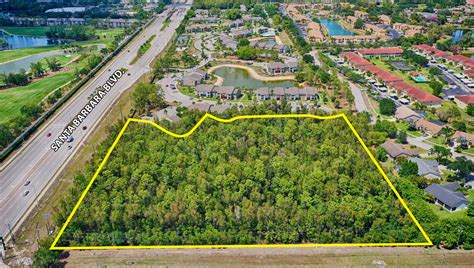The moment of impact is one that can change lives forever. Car collisions, whether minor or severe, can have a profound effect on individuals and families. The aftermath of such an event can be overwhelming, with a multitude of decisions to be made and steps to be taken. In this comprehensive guide, we will delve into 12 crucial car collision tips designed to empower you with the knowledge necessary to stay safe, navigate the immediate aftermath, and make informed decisions about your next steps.
Understanding the Importance of Preparation
Before diving into the tips, it’s essential to acknowledge the importance of preparation. Being prepared doesn’t just mean having the right insurance or knowing the legal procedures; it also involves understanding how to react in the critical moments following a collision. This preparation can significantly influence the outcome, both in terms of safety and the ease of resolving the situation.
1. Stay Calm and Assess the Situation
In the immediate aftermath of a car collision, it’s crucial to remain calm and assess the situation. Check if anyone is injured and call for medical help if necessary. This initial reaction sets the stage for how the situation will unfold, making calmness and quick thinking invaluable.
2. Move to a Safe Location
If the collision occurs on a busy road or in a hazardous location, move your vehicle to a safe location as soon as possible, provided it is safe to do so. This can help prevent further accidents. However, do not leave the scene of the accident until all necessary information has been exchanged and the situation has been properly documented.
3. Call the Authorities
Regardless of the severity of the collision, it’s always a good idea to call the police. A police report can be invaluable for insurance purposes and can help establish fault. When speaking with the police, provide accurate and detailed information about what happened.
4. Exchange Information
Exchange contact and insurance information with all parties involved in the collision. This includes names, phone numbers, insurance details, and vehicle information. It’s also wise to take photos of the damage and the surrounding area.
5. Document the Scene
Use your smartphone to take clear, well-lit photos of the damage to all vehicles involved, the location of the collision, and any visible injuries. This visual documentation can be crucial for insurance claims and legal proceedings.
6. Seek Medical Attention
Even if you don’t feel injured, it’s essential to seek medical attention. Some injuries, such as whiplash or internal injuries, may not be immediately apparent. A medical checkup can provide peace of mind and necessary documentation if injuries are found.
7. Notify Your Insurance Provider
As soon as possible, notify your insurance provider about the collision. They will guide you through the next steps, which may include filing a claim. Be prepared to provide detailed information about the incident.
8. Keep a Record
Keep a detailed record of all events following the collision, including medical visits, repair estimates, and communication with insurance companies. This record can be invaluable for tracking progress and ensuring that all necessary steps are taken.
9. Understand Your Rights
It’s crucial to understand your rights following a car collision. This includes knowing what you are entitled to in terms of compensation for damages and injuries. Consulting with a legal professional can provide clarity on these matters.
10. Choose the Right Repair Shop
If your vehicle needs repairs, choose a reputable and trustworthy repair shop. Ensure that the shop is approved by your insurance provider to avoid any complications with your claim.
11. Be Cautious of Early Settlement Offers
Insurance companies may offer early settlements. While these offers might seem attractive, they often do not fully cover the long-term costs associated with the collision. It’s advisable to consult with a legal professional before accepting any settlement.
12. Consider Legal Advice
Finally, consider seeking legal advice, especially if the collision resulted in significant damage or injuries. A legal professional can provide guidance on how to navigate the complex legal and insurance landscape, ensuring that your rights are protected and you receive the compensation you deserve.
Conclusion
Car collisions are unforeseen events that require a combination of quick thinking, knowledge, and the right actions to navigate safely and effectively. By following these 12 tips, individuals can better prepare themselves for the unexpected, ensuring their safety and well-being in the face of such incidents. Remember, preparation and knowledge are key to turning a potentially devastating situation into a manageable one.
FAQ Section
What should I do immediately after a car collision?
+Stay calm, check for injuries, and call for medical help if necessary. Then, move to a safe location if possible, and call the authorities.
Why is it important to document the scene of the collision?
+Documenting the scene with photos can provide valuable evidence for insurance claims and legal proceedings, helping to establish fault and the extent of damages.
Should I accept an early settlement offer from my insurance company?
+How can I ensure I’m choosing the right repair shop for my vehicle?
+Choose a repair shop that is approved by your insurance provider and has good reviews from previous customers. Ensure they provide detailed estimates and are transparent about their repair process.
What information should I exchange with the other parties involved in the collision?
+Exchange contact and insurance information, including names, phone numbers, insurance details, and vehicle information. It’s also a good idea to take photos of the damage and the other party’s vehicle and license plate.
Why is seeking medical attention important even if I don’t feel injured?
+Some injuries, such as whiplash or internal injuries, may not be immediately apparent. Seeking medical attention can provide a professional assessment of your condition, necessary treatment, and documentation of your injuries for insurance and legal purposes.



